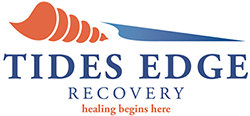In today’s world, understanding how medications affect our bodies is crucial, especially when it comes to powerful opioids like Dilaudid (hydromorphone). Dilaudid is a potent pain reliever often prescribed for severe pain management. Knowing how long it stays in your system is important for both medical and safety reasons, particularly in preventing potential misuse and managing withdrawal symptoms. How long does Dilaudid stay in your system? Let’s consider the specifics of this drug, its duration in the body, signs of abuse, and the detox process. To learn more about opioid abuse detox programs in Florida, call 866.723.3127 today.
What Is Dilaudid?
Dilaudid, known scientifically as hydromorphone, is an opioid analgesic used to treat moderate to severe pain. It works by binding to opioid receptors in the brain, altering the body’s response to pain.
Doctors typically prescribe Dilaudid for patients who require continuous, around-the-clock pain management for a prolonged period. However, due to its high potential for abuse and dependency, it is generally reserved for situations where other non-opioid pain relievers have proven ineffective.
How Long Does Dilaudid Stay in Your System?
The duration Dilaudid remains in your system varies based on several factors, including metabolism, age, body mass, hydration level, and overall health. Typically, Dilaudid can be detected in urine for up to three days after the last dose.
Blood tests can identify it for about 24 hours, while saliva tests may detect it for up to two days. Meanwhile, hair follicle tests can reveal Dilaudid use for up to 90 days. The half-life of Dilaudid is approximately two to three hours, meaning that it takes this amount of time for the concentration of the drug in the blood to reduce by half. However, individual experiences may vary.
Signs of Opioid Abuse
Recognizing the signs of opioid abuse is critical in preventing addiction and seeking timely intervention. Common indicators include increased tolerance to the drug, noticeable withdrawal symptoms when not using the drug, and using the drug in larger amounts or for longer than prescribed.
The following behavioral changes may also signal abuse: such as
- Mood swings
- Social withdrawal
- Neglecting responsibilities
- Engaging in risky activities to obtain the drug
Awareness of these signs can prompt early intervention, crucial for a positive recovery outcome.
What Is Opioid Detox?
Opioid detoxification is the process of allowing the body to remove the drug from its system naturally. This initial phase of addiction treatment helps individuals manage withdrawal symptoms safely and effectively under medical supervision. The primary goal of detox is to achieve physical stability, allowing individuals to proceed with further addiction treatment programs.
During detox, individuals may experience symptoms such as anxiety, nausea, muscle aches, and insomnia. Medical professionals can provide medications to alleviate these symptoms, ensuring a more comfortable detox experience.
Why Tides Edge Detox?
Choosing the right facility for opioid detox is vital for a successful recovery journey. Tides Edge Detox, located in Jacksonville, FL, offers exceptional care tailored to each individual’s needs. With accreditation from the Joint Commission, Tides Edge provides high-quality medical and therapeutic support.
Our center consists of licensed professionals who offer 24-hour supervision, ensuring safety and comfort. Tides Edge Detox also integrates holistic therapies and individualized treatment plans, preparing clients for a seamless transition into their next phase of recovery at Beaches Recovery.
Get the Help You Need Today From Tides Edge
Understanding how long Dilaudid stays in your system and recognizing signs of opioid abuse are crucial steps in addressing potential addiction issues. If you or a loved one are struggling with opioid use, consider the safe and supportive environment of Tides Edge Detox. With our accredited services and compassionate care, Tides Edge Detox can be your first step toward a healthier, addiction-free life.
Call us at 866.723.3127 or use our online contact form. Reach out today and take control of your recovery journey.









